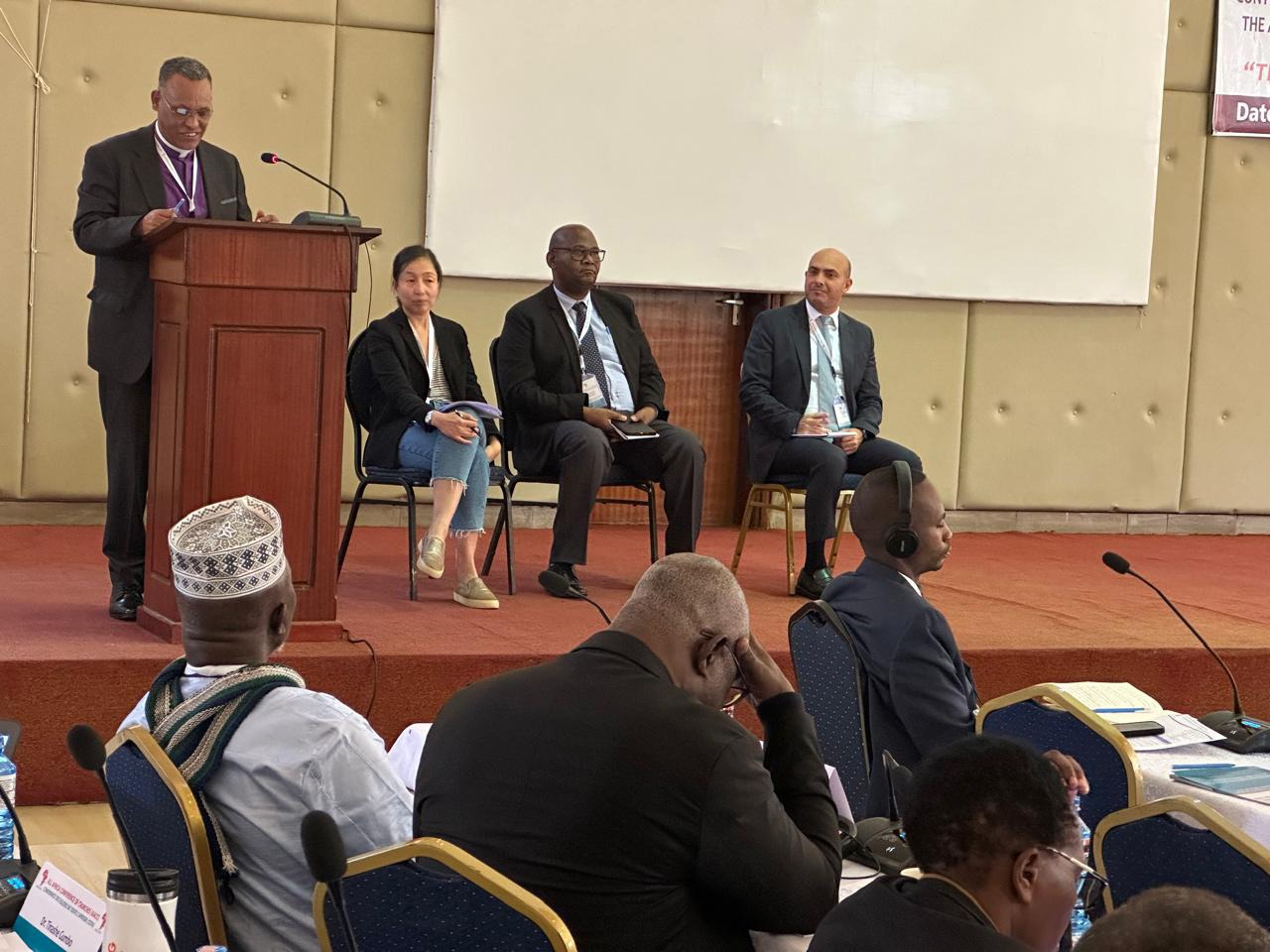The Muslim Council of Elders Participates in an International Conference on Enhancing the Role of Religious Institutions to Achieve Climate Justice for Africa
The Muslim Council of Elders participated in a conference on enhancing the role of religious institutions in achieving climate justice for Africa, organized by the All Africa Conference of Churches (AACC) from August 26 to 30 in Nairobi, Kenya. The conference was attended by a large number of religious leaders and figures from across the continent, as well as representatives from religious organizations and institutions concerned with climate issues.
In his speech during a session titled "Collaboration between Religious Organizations and Multilateral Institutions," Adama Dieng, former UN Under-Secretary-General and Advisor to the Muslim Council of Elders, emphasized that the efforts of His Eminence Prof. Dr. Ahmed Al-Tayeb, Grand Imam of Al-Azhar and President of the Muslim Council of Elders, in addressing the most urgent humanitarian issues have contributed to positive change for humanity. These efforts include signing the Document on Human Fraternity, considered the most significant document in modern history, and issuing "The Call of Conscience: Abu Dhabi Interfaith Statement on Climate Change." Dieng praised the efforts of the All Africa Conference of Churches in supporting climate action, noting that in June 2022, they initiated a process focusing on the role of religious actors in achieving climate justice that would benefit the African continent.
Dieng added that the sustainability of the Earth's resources depends on the actions and policies taken today, especially investments in education, awareness, and combating misinformation and disinformation about the climate crisis. He explained that religious organizations and institutions could provide an ethical and educational framework to support international efforts to address the climate crisis and establish a sustainable global climate justice system.
For his part, Mr. Mohamed Bahr, Director of Strategic Planning at the Muslim Council of Elders, stated during his participation in a session titled "Enhancing Opportunities through Continental and Global Platforms to Achieve Climate Justice: A Case Study of the Faith Pavilion at COP28," that constructive cooperation between religious institutions and organizations stems from a shared interest in environmental conservation and recognition of the close link between human health and environmental safety. He pointed out that the Muslim Council of Elders firmly believes that the global climate crisis requires an urgent response and integrated efforts to address climate change.
Mr. Bahr highlighted the crucial role that religious leaders and figures play in this critical phase, emphasizing that the ethical values derived from religions provide a fundamental basis for addressing environmental challenges. He noted that the Muslim Council of Elders has organized several pioneering initiatives and projects to support global climate action, including the Global Faith Summit on Climate Action, which culminated in the launch of "The Call of Conscience: Abu Dhabi Interfaith Statement on Climate Change," and the establishment of the Faith Pavilion at COP28 for the first time in the history of the Conference of the Parties. This pavilion served as a platform bringing together policymakers, academics, environmental experts, youth representatives, civil society organizations, women, and indigenous peoples to enhance the collective commitment to the environment.
It is worth noting that the conference aims to provide a global platform to discuss success stories and the outcomes of actions taken by religious organizations to promote climate action, as well as the efforts of religious leaders and figures to support the negotiations at COP29. The participation of the Muslim Council of Elders aims to discuss ways to enhance common issues in climate action and prioritize achieving climate justice for Africa, pushing towards the adoption of more sustainable policies.

